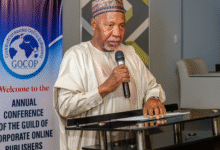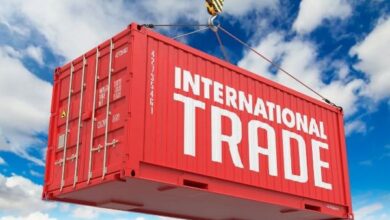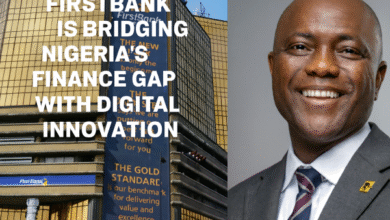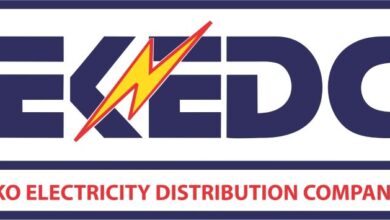42% of Informal Workers Can’t Survive One Month Without Income – Moniepoint Report

A new study by Moniepoint Microfinance Bank has uncovered a sobering reality about Nigeria’s informal economy: 42% of informal workers have no savings buffer to survive beyond a month without income.
The finding, drawn from Moniepoint’s 2025 Informal Economy Report, underscores the fragile state of financial security for millions of small business owners, traders, artisans, and self-employed Nigerians who form the backbone of the nation’s workforce.
The Moniepoint report, produced in collaboration with the Federal Ministry of Industry, Trade and Investment and the Small and Medium Enterprises Development Agency of Nigeria (SMEDAN), will be officially launched on October 17, 2025, at the Abuja Continental Hotel.
The event is expected to convene policymakers, regulators, academics, and business leaders to chart a roadmap for improving financial inclusion and economic resilience among Nigeria’s informal workers.
A Wake-Up Call for Policymakers
According to Moniepoint’s Managing Director, Mr. Babatunde Olofin, the study’s objective is to provide data-driven insights that will help shape national policy responses to the informal economy’s challenges.
“The Informal Economy Report is a robust and important study that examines this critical market more closely and curates fresh insights into its realities,” Olofin said.
“We believe its key outputs will serve ecosystem players and government well in policy direction and execution.”
The Moniepoint report findings paint a stark picture: while the informal sector accounts for over 80% of Nigeria’s employment and contributes significantly to GDP, its workers remain largely excluded from formal financial systems.
This exclusion exposes millions of Nigerians to poverty traps, as they lack savings, access to credit, or safety nets to withstand economic shocks — whether from inflation, illness, or market disruptions.
Nigeria’s Informal Economy: The Backbone Under Pressure
The informal sector remains Nigeria’s largest economic engine, employing millions of market traders, transporters, small-scale manufacturers, and artisans.
However, despite its scale, the sector’s financial invisibility means that most participants operate outside formal credit systems, depend on cash transactions, and remain vulnerable to instability.
Olofin emphasized that Moniepoint’s ongoing research seeks to identify practical solutions to these long-standing challenges.
“For millions of Nigerians excluded from formal employment, informal businesses are not just income sources — they are survival mechanisms,” he said.
“Our goal is to identify ways to help them access credit, build savings habits, and transition gradually into the formal economy.”
The Data Behind the Crisis: What 42% Really Means
Moniepoint’s findings indicate that nearly half of Nigeria’s informal workers live hand-to-mouth, unable to sustain themselves for even a few weeks without fresh income.
This fragile situation reflects deep-rooted structural issues, including:
- Low access to formal banking services — many informal workers operate without bank accounts or micro-savings platforms.
- Limited financial literacy, leading to poor money management and investment decisions.
- Inconsistent income flows, which make saving difficult in an inflationary economy.
- High cost of borrowing from informal lenders and cooperative societies.
In BRANDECONOMY’s analysis, the Moniepoint report data signals not just a personal finance issue, but a macroeconomic risk — as the sector’s instability threatens consumption, local trade, and employment sustainability.
Digital Financial Inclusion as the Next Frontier
The 2025 Informal Economy Report identifies digital inclusion, micro-savings, and affordable credit access as critical pathways to building resilience among informal workers.
Moniepoint — which has built one of Nigeria’s largest agent banking networks — says it intends to leverage its reach to design microfinance products tailored to daily earners, helping them save, invest, and borrow safely.
Olofin emphasized that this approach aligns with Nigeria’s digital economy agenda, positioning technology as the bridge between informal livelihoods and financial empowerment.
“Digital solutions can democratize access to finance for millions who have been excluded for too long,” he said.
“Through data-driven lending, digital wallets, and flexible repayment systems, we can change the story of small business owners across Nigeria.”
SMEDAN and Government Partnership: From Policy to Impact
The partnership between Moniepoint, SMEDAN, and the Ministry of Industry, Trade, and Investment underscores a growing recognition that the informal sector must be mainstreamed into Nigeria’s growth framework.
According to BRANDECONOMY analysis, this collaboration has the potential to transform the informal economy from a survivalist network into a structured ecosystem capable of driving innovation, exports, and tax revenue.
The upcoming Abuja event will feature keynote addresses, panel discussions, and policy dialogues focusing on:
- Strengthening financial literacy at the grassroots level.
- Expanding digital credit infrastructure.
- Reducing regulatory bottlenecks for small enterprises.
- Creating incentives for informal businesses to register and scale.
Olofin noted that such collaboration represents a rare convergence of data, policy, and private-sector execution, with the potential to reshape Nigeria’s informal finance landscape.
Learning from the First Edition: From Data to Action
The 2025 report builds on the success of the inaugural edition, which earned praise for its evidence-based analysis and actionable recommendations.
That earlier report helped inform several financial inclusion programs, including micro-loan initiatives, SME credit guarantees, and digital onboarding schemes for rural merchants.
This new edition, however, delves deeper — with richer data sets, stronger stakeholder collaboration, and an expanded focus on digital resilience, youth entrepreneurship, and women’s economic participation.
The Road Ahead: Empowering the Informal Workforce
At its core, Moniepoint’s 2025 Informal Economy Report is more than just a study — it is a call to action.
With over 60 million Nigerians depending on informal livelihoods, the need for structured financial inclusion has never been more urgent.
BRANDECONOMY’s analysis indicates that achieving widespread financial resilience will require:
- Regulatory harmonization to protect micro-entrepreneurs.
- Affordable digital infrastructure for mobile-based savings and payments.
- Public-private partnerships that fund microcredit and insurance schemes.
- Behavioral financial education tailored to small traders and artisans.
As Olofin noted, “Our ultimate goal is to ensure that no small business or informal worker is left behind in Nigeria’s growth story.”
Conclusion: From Vulnerability to Viability
The Moniepoint report has thrown new light on a long-standing economic paradox — a sector that sustains millions yet remains structurally vulnerable.
By combining data, technology, and inclusive finance, Nigeria now stands at the threshold of converting its vast informal economy into a sustainable growth engine.
The challenge, as BRANDECONOMY observes, lies not in diagnosing the problem — but in executing solutions that will empower every trader, artisan, and micro-entrepreneur to thrive, not just survive.











